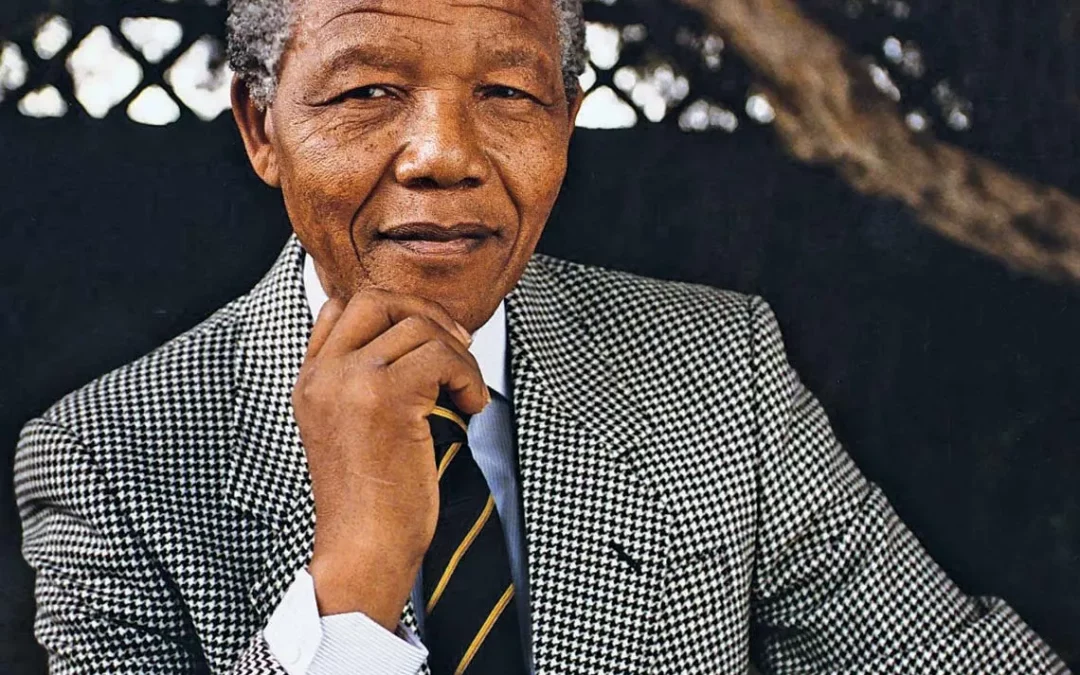On 18 July we celebrate Nelson Mandela Day. As António Guterres, Secretary-General of the United Nations declares, “Nelson Mandela’s extraordinary life showed how one person can transform oppression, struggle and subjugation into reconciliation, social justice and unity.
Just as Madiba’s life was a triumph of the human spirit, his legacy is a call to rekindle our global commitment to peace, justice and human dignity.
This year’s theme reminds us that the power to end poverty and inequality is in all our hands.
Mandela believed in the power of collective, grassroots action. He knew that ordinary people could bend the arc of history, and that lasting change started not in capitals and boardrooms, but in neighbourhoods and communities.
Mandela’s life of service and progress continues to inspire our own efforts at the United Nations, as we celebrate our 80th anniversary.
On this important day, and every day, let us all be guided by Madiba’s lifelong commitment to freedom, justice, equality and the rights that belong to every person on earth.”
Recently, one of our Racial Justice and Beloved Community (RJBC) ministry team members had a meaningful moment of rediscovery when he came across a personal reflection that he had posted publicly back in December 2013, shortly after the death of Nelson Mandela. It acknowledges Mandela’s remarkable legacy and addresses how it still speaks into our current context. We think that it is worth sharing again.
The UN highlights that Mandela said: “It is in your hands to make of the world a better place.” And so, every year on Mandela Day, it asks people around the world to take action and inspire change by making a difference in their communities. We offer Haswell Beni’s post to you with the invitation to follow in Mandela’s footsteps and in whatever way you can, to take action on racial justice and inspire a change of heart (yours and others) as we build beloved community.
Peace is not just the absence of conflict; peace is the creation of an environment where all can flourish, regardless of race, color, creed, religion, gender, class, caste, or any other social markers of difference.
“Live, Love, Lead the Legacy of Nelson Mandela
I thank God for the legacy Nelson Mandela left behind—for Africans, and for humanity around the world.
He taught us a powerful leadership lesson: to be inwardly secure in our identity, and to create an environment where others can grow and thrive as future leaders. He showed us that each of us has the potential—physical, mental, and spiritual—to live authentically and fulfill our God-given purpose.
Mandela believed the best about others. He believed people could rise to their full potential to serve and lead effectively. He demonstrated this belief by stepping down after one presidential term, giving space for others to lead.
Nelson Mandela was a man of vision: he lived, he loved, and he led.
He experienced the transformative power of love, and he reaped the rewards of perseverance.
He fought injustice even as it crushed him—and in doing so, he helped give birth to justice.
He journeyed from prisoner to president,
From racism to racial reconciliation,
From fear and hatred to love,
From division to unity—toward a common goal: freedom.
Every human being has the right to both inward and outward freedom, to dignity and respect.
We are all made in the image of God.
Goodbye, Madiba.
I thank God for those who saw the potential in Mandela and invested their lives and resources in him.
In reflecting on his legacy, I am struck by how truly remarkable he was.
I also thank God for Frederik Willem de Klerk, the last apartheid-era president of South Africa, who ordered Mandela’s release—acknowledging that Mandela was a “unifier,” and praising his “remarkable lack of bitterness” in a BBC interview.
This, in some ways, corrects what he said in his 11th May 2012 interview with CNN’s Christiane Amanpour.
As we commemorate Mandela Day, I’m reminded that racial justice and the beloved community are not ends in themselves, but instruments—tools we are given to fulfill the Greatest Commandment:
“To love God and to love others.“
In Christ’s love,
Haswell Beni
RJBC

